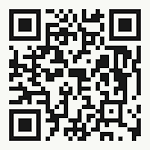Thousands of UFO
sightings are reported every year but not many countries are willing to
spend money investigating them - there is just one dedicated state-run
team left in Europe. Is France onto something?
It's almost Soviet-style in the heart of southern France. There are few signs of life even though 1,500 people, most of them civil servants, work in boxy offices along narrow unappealing corridors.
France has the biggest space agency in Europe - the result of the 1960s space race and President Charles de Gaulle's grand determination to keep France independent of the US by building its own satellites, rocket launchers and providing elite space research.
An offshoot of all that - France is the only country in Europe to maintain a full-time state-run UFO (unidentified flying objects) department. There used to be one in the UK and another in Denmark but they closed down years ago due to budget cuts.
France's UFO unit consists of four staff, and about a dozen volunteers who get their expenses paid to go on site and look into reports of strange sightings in the skies.
| A drawing from the files at the French UFO department |
Its boss is Xavier Passot. Surrounded by dozens of books on UFOs, and stacks of documents, he tells me his mission is to be as transparent as possible about strange sightings and to follow up on each one that his team receives.
They publish their results on their website
which gets 30,000 hits a month. The team receives, on average, two UFO
sightings a day. The department insists an 11-page form is filled out
for each one. The idea is to provide details including photographs where
possible but also weed out jokers and time-wasters.
The team also has access to military flight paths and is in touch with the air force and air traffic controllers.
Sometimes if its staff are really intrigued by photos they have seen or if there have been several witnesses to the same sighting, they will call the local police to ask whether they can be considered credible.
They might even check with neighbours to see whether they were out drinking that night or perhaps smoking something other than cigarettes.
Passot says many of the people who get in touch are smokers, puffing away outside bars or their own homes at night, gazing at the stars.
One of the boxy offices houses yellowing archives going back to the 1950s. The papers I look at contain eerie accounts of strange things encountered in the skies by fighter pilots on routine reconnaissance missions.
I take a look at some amazing photos of strange lights and circular forms caught on camera. One, taken by a motorist, of a white ring shape above Marseille is particularly grabbing (the image at the top of this page). But the team figured that one out - it wasn't invaders from Mars, just the reflection of a small interior overhead light in the car.
In fact, the department can explain away nearly all these phenomena and, believe it or not, the most common culprits are Chinese lanterns sent up at night during parties. The investigators often telephone the local town hall to ask if, perhaps, there had been a wedding going on at the time.
Balloons and kites floating in the skies also get mistaken for alien craft, and space debris and falling meteorites giving off strange lights are more common than one might think.
Link: http://www.bbc.com/news/magazine-29755919

0 comments:
Post a Comment